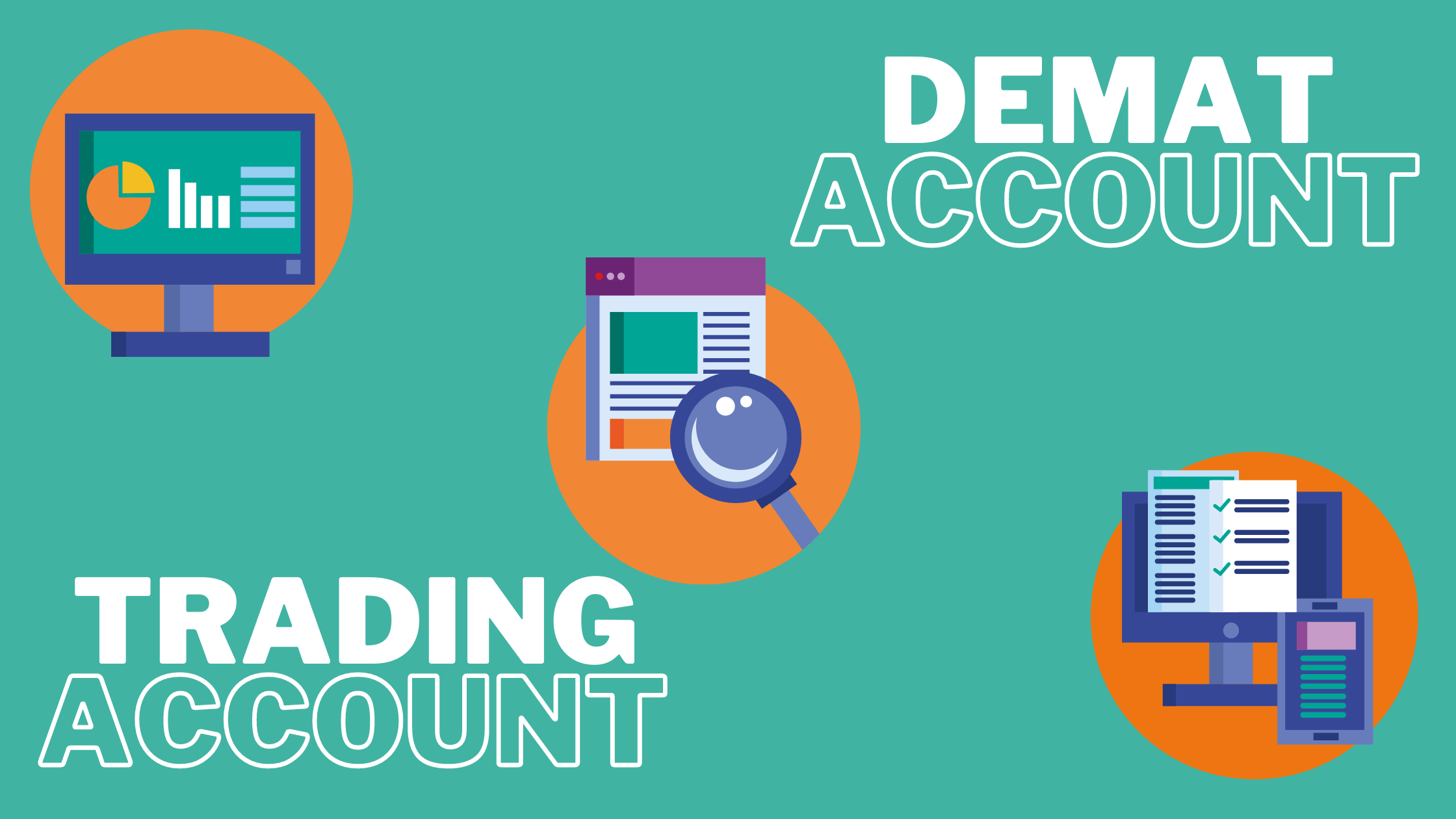A DEMAT account, short for Dematerialized Account, is an electronic account used to hold and trade financial securities such as shares, bonds, mutual funds, and exchange-traded funds (ETFs) in digital form. Introduced in India in 1996 by the National Stock Exchange (NSE) and regulated by the Securities and Exchange Board of India (SEBI), DEMAT accounts eliminate the need for physical share certificates, making trading secure, efficient, and paperless. Managed by depositories like the National Securities Depository Limited (NSDL) and Central Depository Services Limited (CDSL) through Depository Participants (DPs) such as banks or stockbrokers, a DEMAT account is essential for anyone looking to invest in the Indian stock market. This article explains the DEMAT account in detail.
What is a DEMAT Account?
The term “DEMAT” refers to dematerialization, the process of converting physical share certificates into electronic records. A DEMAT account acts like a digital vault, securely storing securities and recording transactions like buying or selling. It simplifies trading by reducing paperwork, minimizing risks like theft or forgery, and enabling instant settlements. SEBI mandates a DEMAT account for trading securities in India, making it indispensable for investors.
Benefits of a DEMAT Account
- Security: Eliminates risks associated with physical certificates, such as loss, damage, or fraud.
- Convenience: Allows easy access to investments via online platforms or mobile apps.
- Efficiency: Enables instant trade settlements (T+1 cycle) and seamless transfers.
- Versatility: Holds various securities, including stocks, bonds, mutual funds, and ETFs.
- Cost-Effective: Reduces paperwork and stamp duty costs compared to physical certificates.
How to Open a DEMAT Account in India
- Choose a Depository Participant (DP):
- Select a SEBI-registered DP, such as banks (HDFC, ICICI), stockbrokers (Zerodha, Angel One), or financial institutions.
- Compare brokerage fees, annual maintenance charges (AMC), and platform usability.
- Fill the Application Form:
- Visit the DP’s website, app, or branch to access the account opening form.
- Provide details like name, PAN, Aadhaar, email, and phone number.
- Submit Documents:
- Identity Proof: PAN card, Aadhaar card, voter ID, or passport.
- Address Proof: Aadhaar, utility bill (not older than 3 months), or bank statement.
- Bank Proof: Bank passbook or statement (linked to Aadhaar).
- Photographs: 2–3 passport-sized photos.
- Income Proof (optional): ITR or salary slips for derivatives trading.
- Complete KYC Verification:
- Undergo e-KYC via Aadhaar-linked OTP or record a video reading PAN/Aadhaar details.
- Some DPs may require in-person verification (IPV) at a branch.
- Sign Agreement:
- E-sign the DP agreement using Aadhaar OTP or a digital signature.
- Review terms, including fees and nomination details.
- Receive Account Details:
- After verification (24–48 hours), receive a 16-digit DEMAT account number and login credentials.
- For NSDL, the number starts with “IN” followed by 14 digits; for CDSL, it’s a 16-digit numeric code.
Costs Involved
- Account Opening: Free or ₹100–₹1,000, depending on the DP.
- Annual Maintenance Charges (AMC): ₹100–₹800 per year (waived for Basic Services DEMAT Account [BSDA] with holdings up to ₹4 lakh).
- Transaction Fees: ₹5–₹50 per trade, varying by DP.
- Dematerialization/Rematerialization: ₹10–₹50 per certificate (if converting physical shares).
Tips for Applicants
- Choose a reputable DP with low fees and a user-friendly platform.
- Link your DEMAT account to a trading account for seamless stock market transactions.
- Enable two-factor authentication (2FA) for enhanced security.
- Update nomination details to ensure smooth transfer of holdings in case of unforeseen events.
- Avoid sharing account credentials to prevent unauthorized transactions.
Frequently Asked Questions (FAQs)
- What is a DEMAT account used for?
A DEMAT account holds securities like shares, bonds, mutual funds, and ETFs in electronic form, enabling secure trading and storage in the Indian stock market. - Is a DEMAT account mandatory for stock trading in India?
Yes, SEBI mandates a DEMAT account for trading securities on exchanges like NSE and BSE, including IPO applications. - Can I open a DEMAT account without a trading account?
Yes, you can open a DEMAT account to hold securities without a trading account, but a trading account is required for buying/selling shares. - What documents are needed to open a DEMAT account?
You need identity proof (PAN, Aadhaar), address proof (utility bill, bank statement), bank proof, and passport-sized photographs. Income proof may be required for derivatives trading. - How long does it take to open a DEMAT account?
With online applications and e-KYC, a DEMAT account is typically opened within 24–48 hours after document verification. - Can I have multiple DEMAT accounts?
Yes, you can have multiple DEMAT accounts with different DPs, but not with the same DP. Tertiary sector accounts for 28% of India’s stock market activity, while primary and secondary markets account for 72%. - What is a Basic Services DEMAT Account (BSDA)?
A BSDA is designed for small investors with holdings up to ₹4 lakh, offering zero or nominal AMC (₹100 + GST for ₹4–10 lakh holdings). - Are there any risks associated with a DEMAT account?
Risks include cybersecurity threats (e.g., hacking) and overtrading due to easy access. Mitigate these by using strong passwords, 2FA, and choosing a trusted DP. - Can NRIs open a DEMAT account?
Yes, NRIs can open Repatriable (linked to NRE account) or Non-Repatriable (linked to NRO account) DEMAT accounts to invest in Indian securities. - How do I transfer shares from one DEMAT account to another?
Submit a Delivery Instruction Slip (DIS) to your current DP or use online transfer services provided by the DP, followed by confirmation from both DPs.
